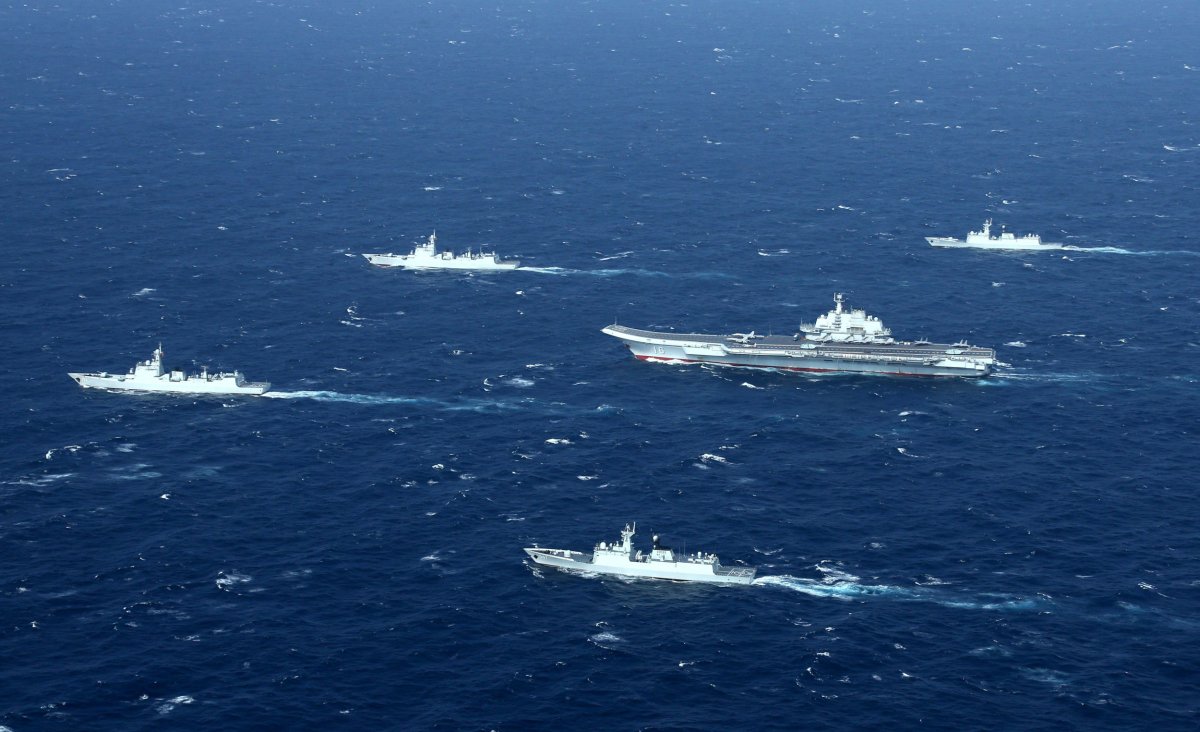Micah McCartney
China's military is perilously close to being able to launch a surprise offensive against Taiwan, the commander of the U.S. Pacific fleet has warned.
Adm. Samuel Paparo, whom President Joe Biden has nominated as the next head of the Indo-Pacific Command, said the U.S. military will need to leverage innovations like machine learning and drone swarming technology to get a "stare instead of a blink" on China's military movements.
U.S. intelligence said last year Chinese leader Xi Jinping had ordered the People's Liberation Army (PLA) to be ready to invade Taiwan by 2027. Many U.S. analysts have said Chinese preparations for war with Taiwan would likely be obvious months, if not a years, before any attack. However, former senior CIA intelligence analyst John Culver warned the potential for a smaller-scale campaign against outlying islands just off the Chinese coast, like Kinmen, is often overlooked.
In spite of a range of domestic headwinds facing Beijing, from a cooling economy to corruption at the highest levels of its military, the Chinese authorities "are undaunted in their ambitions for their excessive claims or their desire to coerce—if not effect—through the use of force its ambitions, notably in the West Pacific but worldwide," Paparo said at a summit hosted by the Department of Defense's Defense Innovation Unit earlier this month.

This aerial photo taken on January 2, 2017, shows a Chinese navy formation, including the aircraft carrier Liaoning, center, during military drills in the South China Sea. China's aircraft carrier buildup is part of Beijing's efforts to seek greater global power.
China claims Taiwan as its territory despite the fact the Chinese Communist Party government in Beijing has never ruled on the island. In the South China Sea, Beijing's sweeping territorial claims have pitted China against an increasingly assertive Philippines, a U.S. Mutual Defense Treaty ally.
Paparo warned China's capacity to project force in nearby waters is fast approaching a juncture where the PLA could pivot from a large-scale exercise to a major offensive with little notice.
"Just in the last three years, step-level changes in the [Chinese military] force levels, the jointness of those force levels, the rehearsals that are apparent to the joint force and raising the threshold of warning to the point where soon we'll be at a point where a force sufficient to execute a profound military operation is in the field and operating under a fig leaf of exercise," he said.
He said this "erosion of strategic operational and tactical warning" is a call to action for Washington, which needs to adopt new tools to better predict China's moves, support American partners in the region, and "if so called by the commander-in-chief, answer to the readiness to defend Taiwan if the PRC (People's Republic of China) should decide to settle matters with the use of force."
Though the U.S., like most countries, does not recognize Taiwan officially, it maintains a de facto diplomatic presence there and is the island's largest arms supplier. Washington maintains a decades-long policy of "strategic ambiguity" on whether it would come to Taiwan's defense in the event of a Chinese attack.
The admiral said being able to field a large number of unmanned aircraft in waters where China currently has an offensive and sensory edge will be key to securing an effective American readiness posture in the future.
Low-cost drone "swarming" over an area over time provides the operating military with sensory "stare" compared with the "blink" provided by manned missions that would carry more risk. Moreover, pairing this data with machine learning could provide a clearer, AI-assisted picture of likely threats on the horizon.
"That ability to see and sense what our competitors are doing so we can be better prepared for aggression, I think is an important gap," Paparo said.
No comments:
Post a Comment